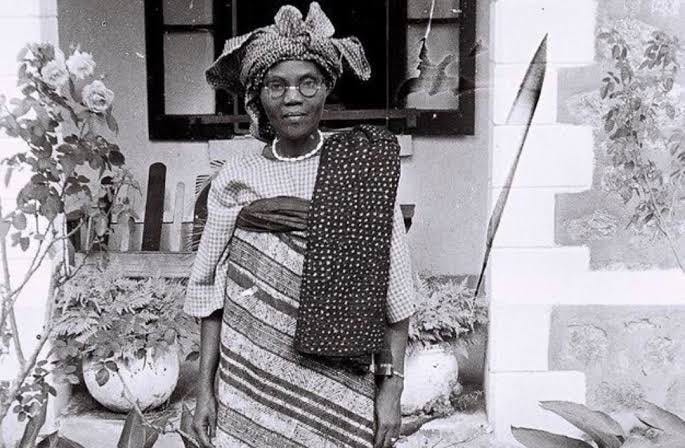Funmilayo Ransome-Kuti: This Biopic Strikes a Chord with Today's Audiences
It not only sheds light on a mostly forgotten chapter of Nigerian history but also connects deeply with contemporary issues like undue taxation.
Written by: Tunde Babalola
Directed by: Bolanle Austen-Peters
Starring: Kehinde Bankole, Joke Silva, Iyimide Ayo-Olumoko, Ibrahim Suleiman, Iremide Fantasticks Adeoye, Adebayo Salami, Dele Odule, Jide Kosoko, Omowunmi Dada, Adunni Ade, and many more.
"When you're accustomed to privilege, equality feels like oppression." — Unknown
The essence of Bolanle Austen-Peters' Funmilayo Ransome-Kuti is a reminder for us to challenge the status quo. At least that was my biggest takeaway from it. This biopic is not only enlightening and inspiring but also entertaining, which, although not a defining requirement, is a nice-to-have ingredient in this genre.
Many know Funmilayo Ransome-Kuti as the first Nigerian woman to drive a car, but this film reveals her as a pioneer of women's rights and social justice. The film brings to life a mostly forgotten part of Nigerian history, highlighting her passion for gender equality and her efforts to unite women across social divides for their rights and futures. It’s a striking reminder of how someone who fought hard to change history can be so casually forgotten today, and it’s this malady Bolanle Austen-Peters sets out to correct.
Funmilayo Ransome-Kuti opens with a raid on the Kalakuta Republic carried out by soldiers of the Nigerian Army in 1977. The attack sees an older Funmilayo (played by Joke Silva) thrown out the window of a two-storey building, an incident that, in real life, led to complications from which she never recovered. But that is another story. The aftermath of this event sees Funmilayo recounting her life to Isabelle (Tatiana Nassar Boudokhane), a Spanish journalist, from her hospital bed.
Funmilayo recounts tales of the wholesome relationship she shared with her father, Mr. Thomas, an educationist from whom she picks up the traits that set the grounds for the fights she picks later in life. It flows on to address the origins of her romance with her husband Israel, a clergyman who doesn’t hold her back from being true to herself and calling when the time comes for it.
Perhaps not intentional, but a part of me left Funmilayo Ransome-Kuti thinking of it as a love story. Through these flashbacks, the narrative paints Funmilayo not just as a historical figure, but as a woman driven by love — for her husband, for justice, and for the women of Egba who suffered under unjust taxation. This portrayal of Funmilayo's love and dedication adds depth to her character and makes her struggles even more poignant.
The film's exploration of undue taxation resonates deeply with today’s socio-political climate, making the historical narrative not just a recount but a reflection of ongoing struggles. From Nigeria to Kenya, tales of unjustifiable taxation fill the daily news. Governments around the world continue to squeeze citizens to fund extravagant lifestyles without considering the well-being of the people they’ve sworn to lead. This historical parallel adds relevance and urgency to the story. The timeliness of Funmilayo Ransome-Kuti’s arrival on Prime Video cannot be overstated. It serves as a form of social commentary and a charge for change, reminding Nigerians that the ultimate power lies with the governed, not the ruling class.
Tunde Babalola's script, coupled with Bolanle Austen-Peters' masterful direction, ensures smooth pacing that keeps the audience engaged from start to finish. The director’s sated eyes for stories heavy on social commentary effortlessly shine here, with lessons from her experience working on Collision Course (2021) and Man of God (2022) lending itself here. The narrative is meticulously crafted to maintain interest and emotional investment.
Kehinde Bankole’s portrayal of Funmilayo Ransome-Kuti is nothing short of remarkable. Her authenticity, especially in moments of intense emotion where her voice strains during protests, brings a high level of believability to her character. Bankole’s performance is one of the film’s highlights, and it feels like a missed opportunity for the awards to not acknowledge this role more prominently—especially over Adire. The other actors, including those portraying Funmilayo across different timelines, also deliver strong performances, contributing to the film's overall impact.
The attention to detail in the production design significantly elevates the storytelling experience, immersing the audience in the historical period. From costumes to sets, every element works cohesively to transport viewers back in time. The film’s stunts and choreography, particularly in scenes of protest and confrontation, are executed with a raw intensity that underscores the women's struggle and resilience. Moments like the women stripping naked in protest and their subsequent beatings are portrayed with visceral power, making the viewer feel the gravity of their plight. These scenes were some of the best in the movie.
However, one notable issue lies in the film's sound design, particularly with the ADR (Automated Dialogue Replacement). This technique, essential in post-production to ensure dialogue clarity, sometimes distracts from the immersive experience. Poorly executed ADR moments are evident, with dialogue occasionally feeling disjointed from the actors' performances. These inconsistencies can pull viewers out of the story, detracting from the otherwise compelling narrative and performances.
Funmilayo Ransome-Kuti is a biopic that not only sheds light on a mostly forgotten chapter of Nigerian history but also connects deeply with contemporary issues. Many once knew her only as the first woman to drive a car in Nigeria, but by the end of the film, she’s unveiled as an educator, political campaigner, suffragist, and women's rights activist. The revival of this historical narrative is both enlightening and inspiring, calling for more films that highlight such significant figures. Winning Best Film at AFRIFF 2023 and Best Screenplay at both AFRIFF 2023 and AMVCA 2024, these accolades attest to the film's quality and impact. Despite the occasional sound design distractions, the overall impact of the story, performances, and production design make it a compelling watch.
Funmilayo Ransome-Kuti reminds us that true change often requires challenging the status quo, no matter the personal cost. It serves as a powerful reminder of the importance of remembering and honoring those who paved the way for social justice, building upon the successes of other biopics like 93 Days (2016), Ayinla (2021), and Amina (2021) to tell an essential Nigerian historical story while centering an important figure.







